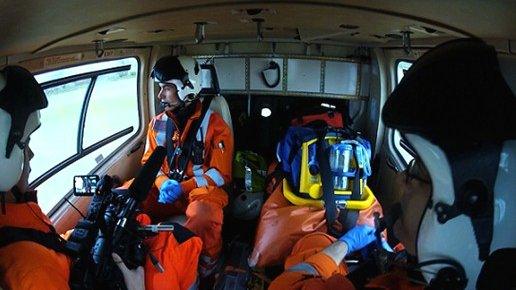Addenbrooke's Hospital on 'black alert' over staff levels
- Published
Addenbrooke's Hospital has seen a surge in accident and emergency admissions and for the last fortnight the hospital has been on Black Alert' the highest level of concern.
GPs have been asked to consider alternatives to sending patients to A&E after a Cambridge hospital declared a "black alert" as it struggles to cope with "critical staffing levels".
Cambridge University Hospitals Trust (CUH) said Addenbrooke's Hospital had "severe capacity pressures" but it had been "actively recruiting" new staff.
The highest level alert has been in place for almost two weeks.
The trust said patients with life-threatening injuries would be treated.
CUH spokesman Adrian Ient confirmed the hospital would "prioritise" patients with life-threatening injuries, who would be treated immediately.
Non-critical patients would need to be sent to alternative hospitals or "wait longer".
'Fluctuating alerts'
A letter, dated 10 July was sent to GPs, the ambulance service and four hospitals in the region, warning them of the problems at Addenbrooke's.
The trust has seen an increase in A&E attendances of 9% in April, May and June compared to the same period last year, Mr Ient said.
In 2012-13 Addenbrooke's was on black alert for 190 days and for 124 days the previous year.
Ruth Rogers, chair of independent organisation Healthwatch Cambridgeshire, said: "We're aware that this is not decreasing.
"The demand for services has risen and that is a challenge for Addenbrooke's.
"However, while you might expect a spike in demand in winter, it's always a bit worrying when this sort of thing happens in the summer months as well."
Mr Ient said: "Black alert is a hospital's highest level of escalation, which means that a number of actions will be considered including opening day units overnight and postponing planned surgery."
The black alert was in place across all areas, Mr Ient added.
The trust has been actively recruiting more staff and is working with the Clinical Commissioning Groups to address capacity issues, he said.
- Published1 May 2014

- Published24 February 2014
